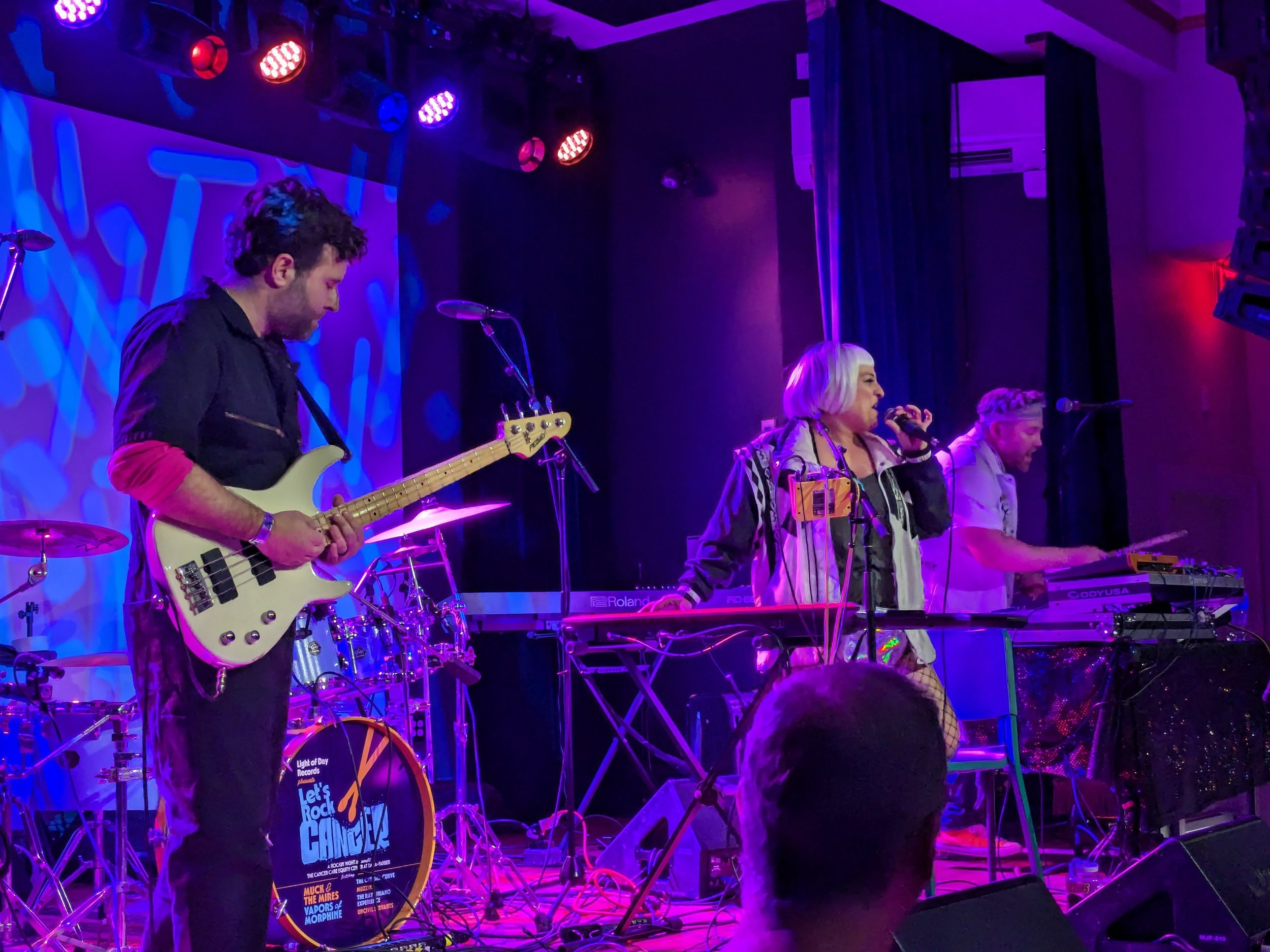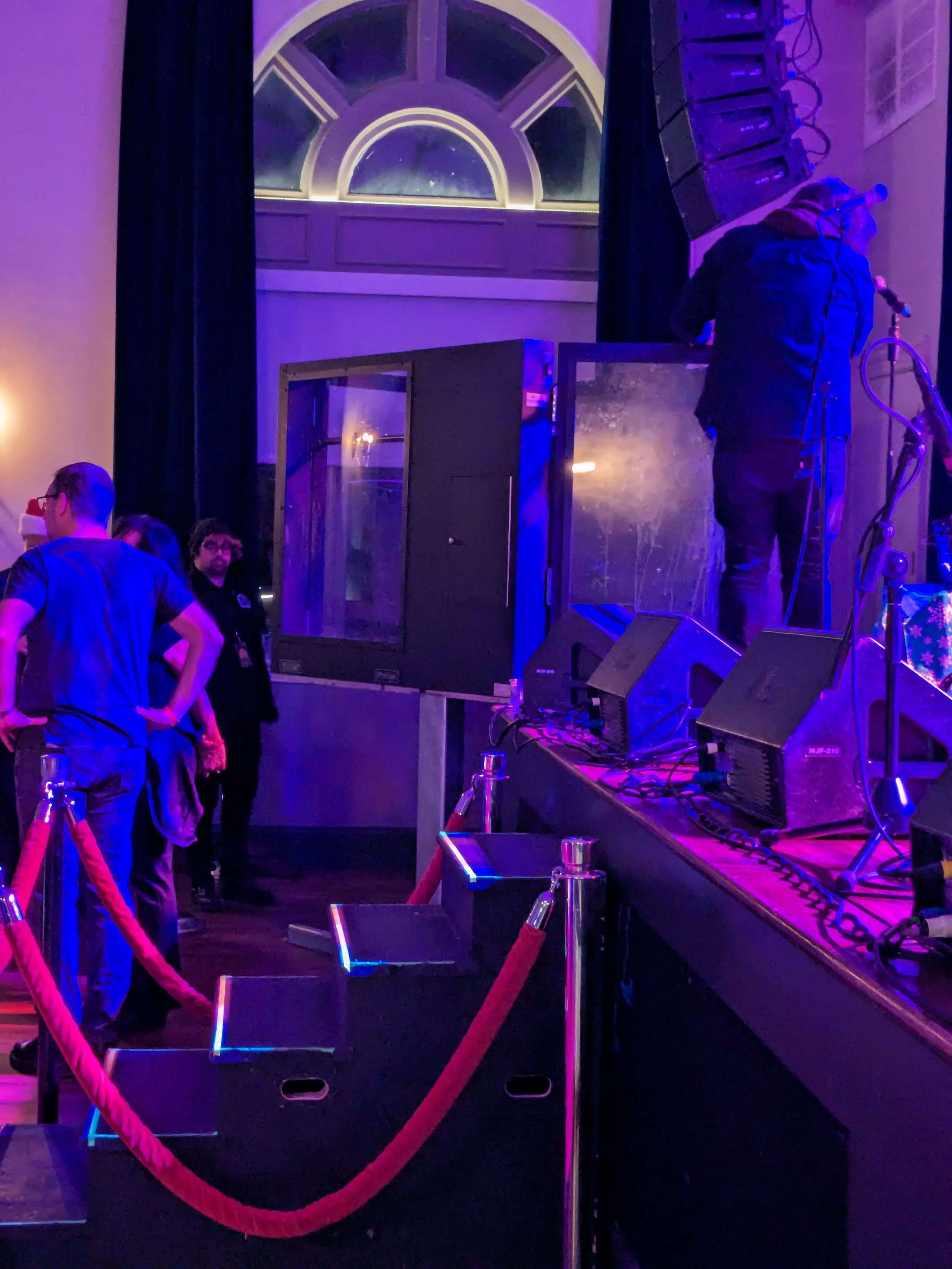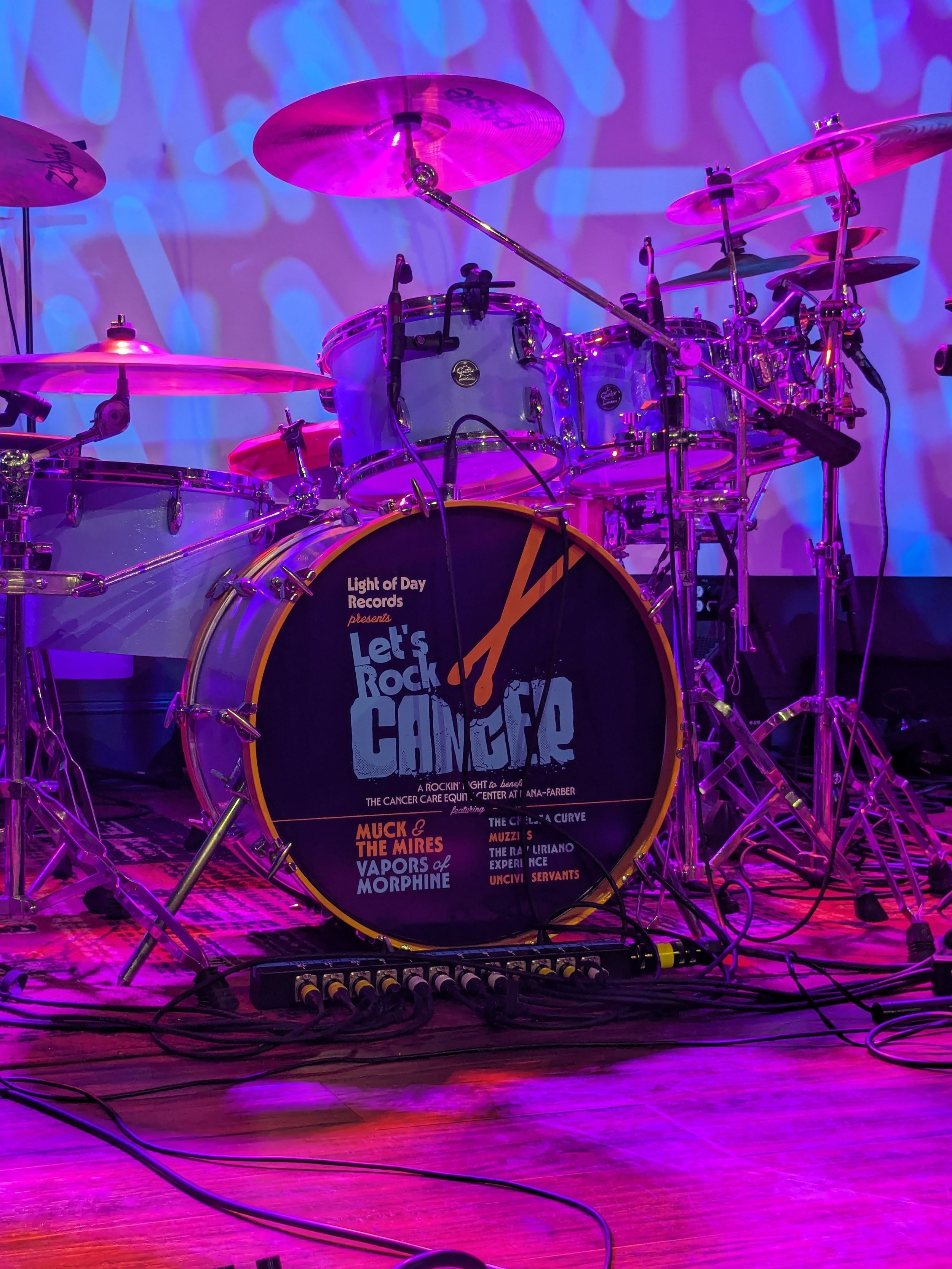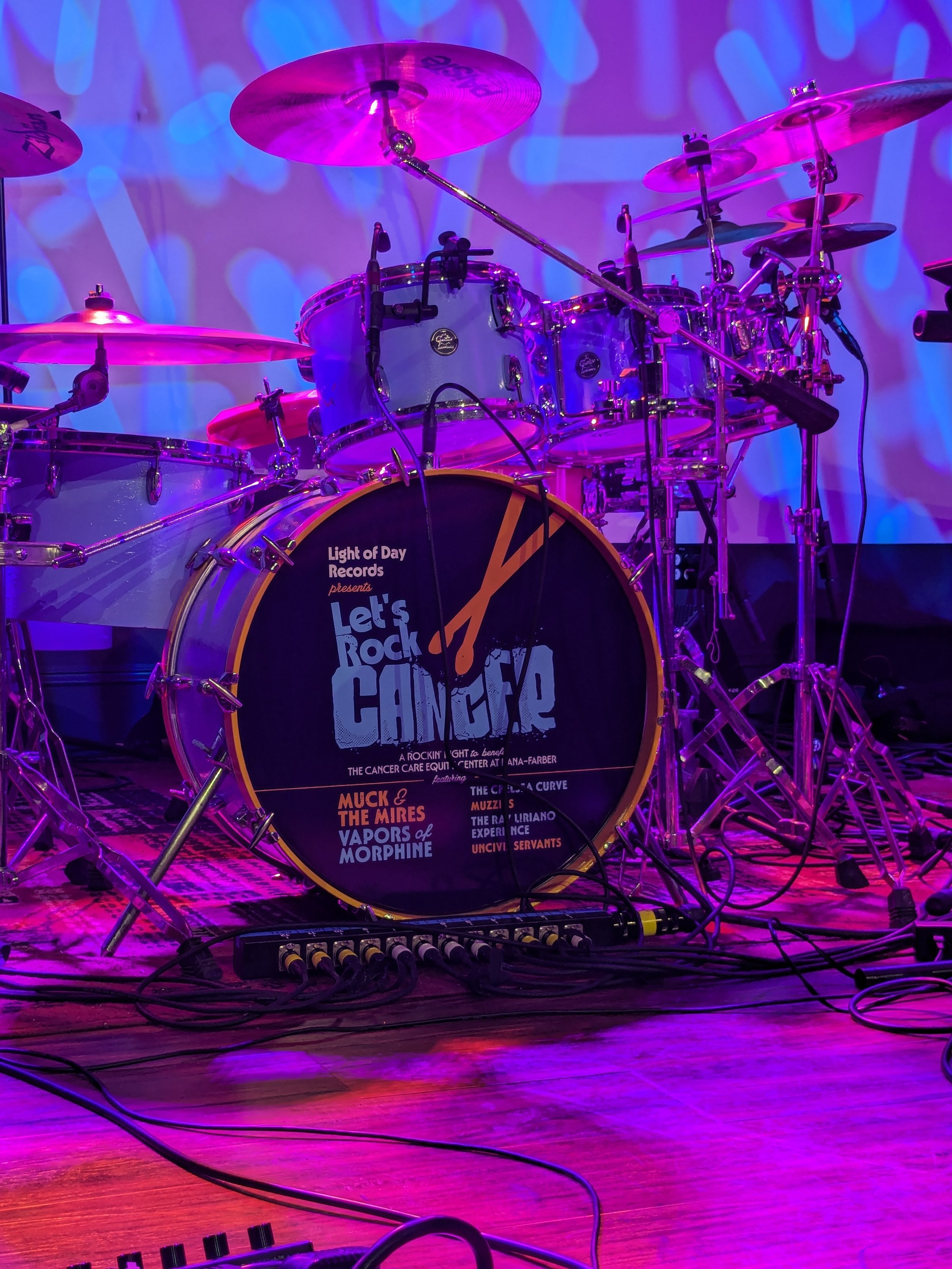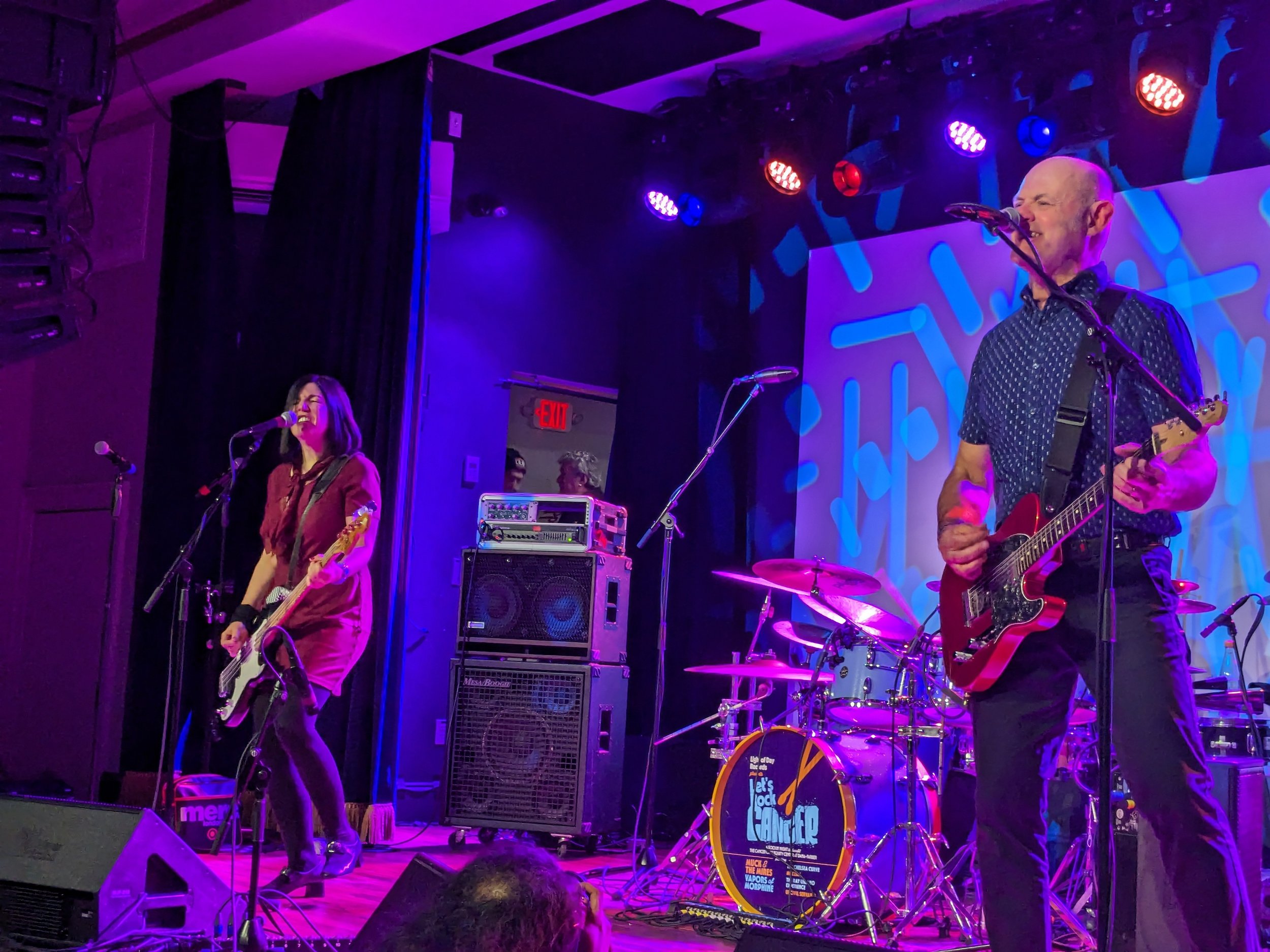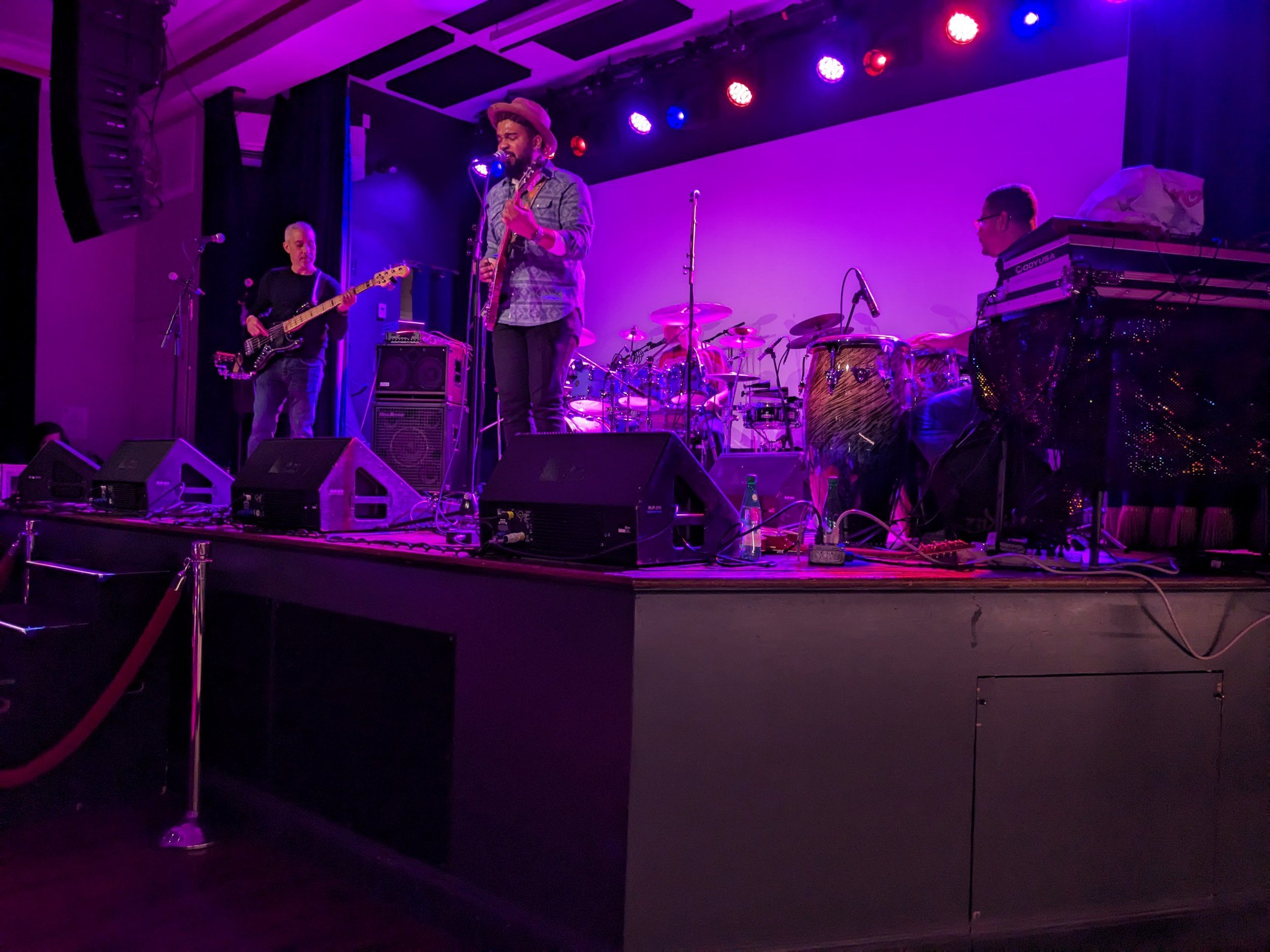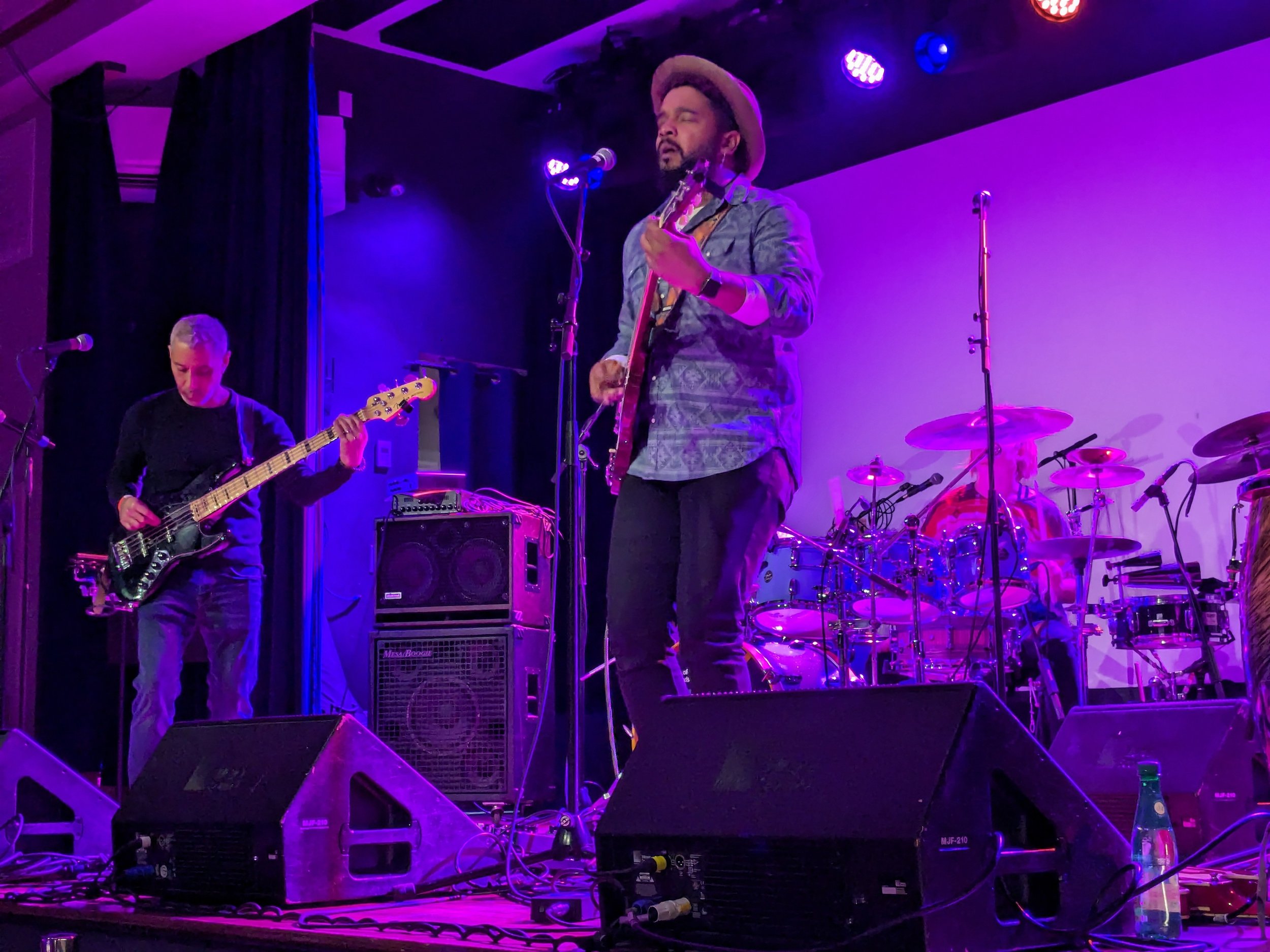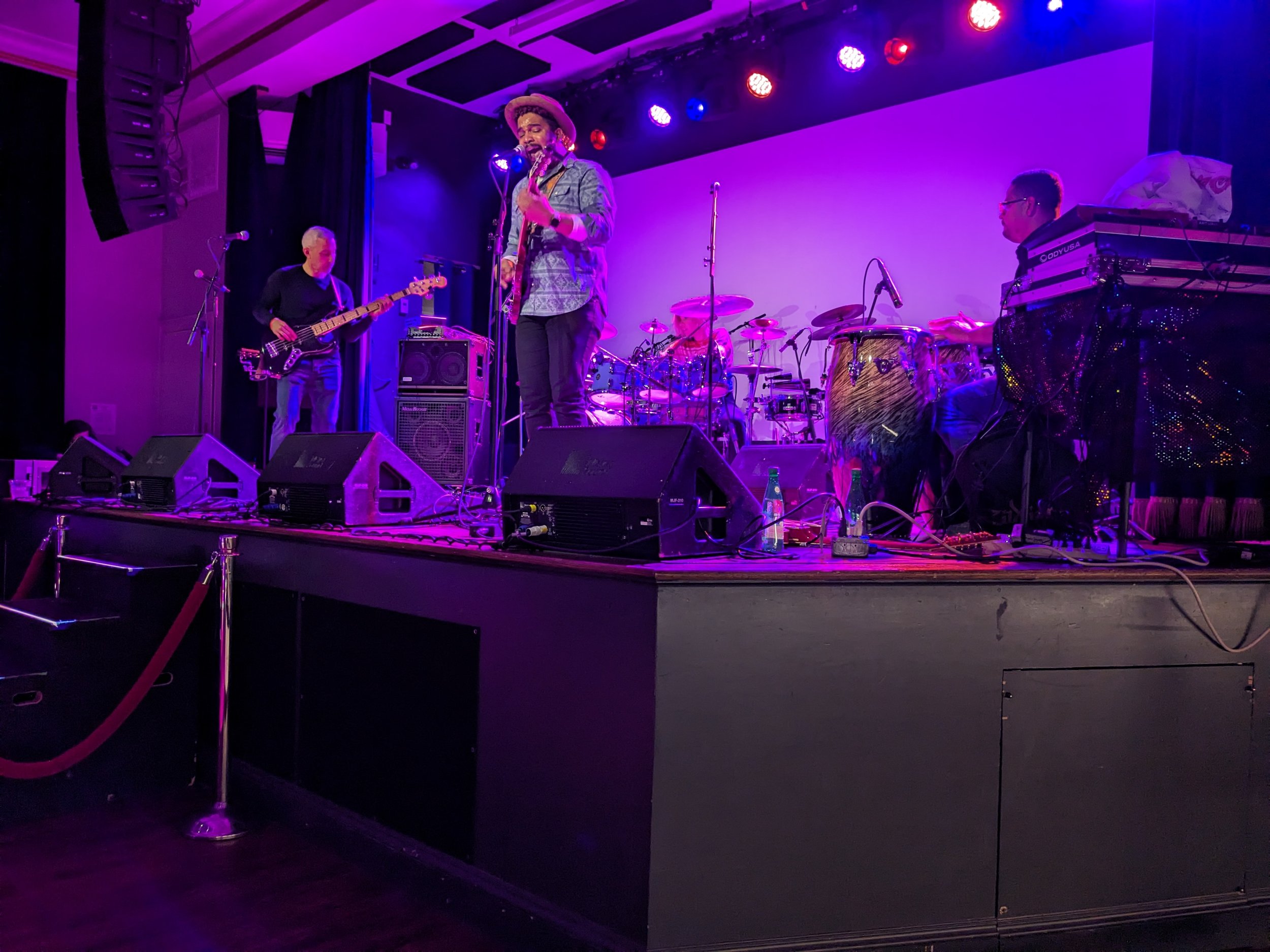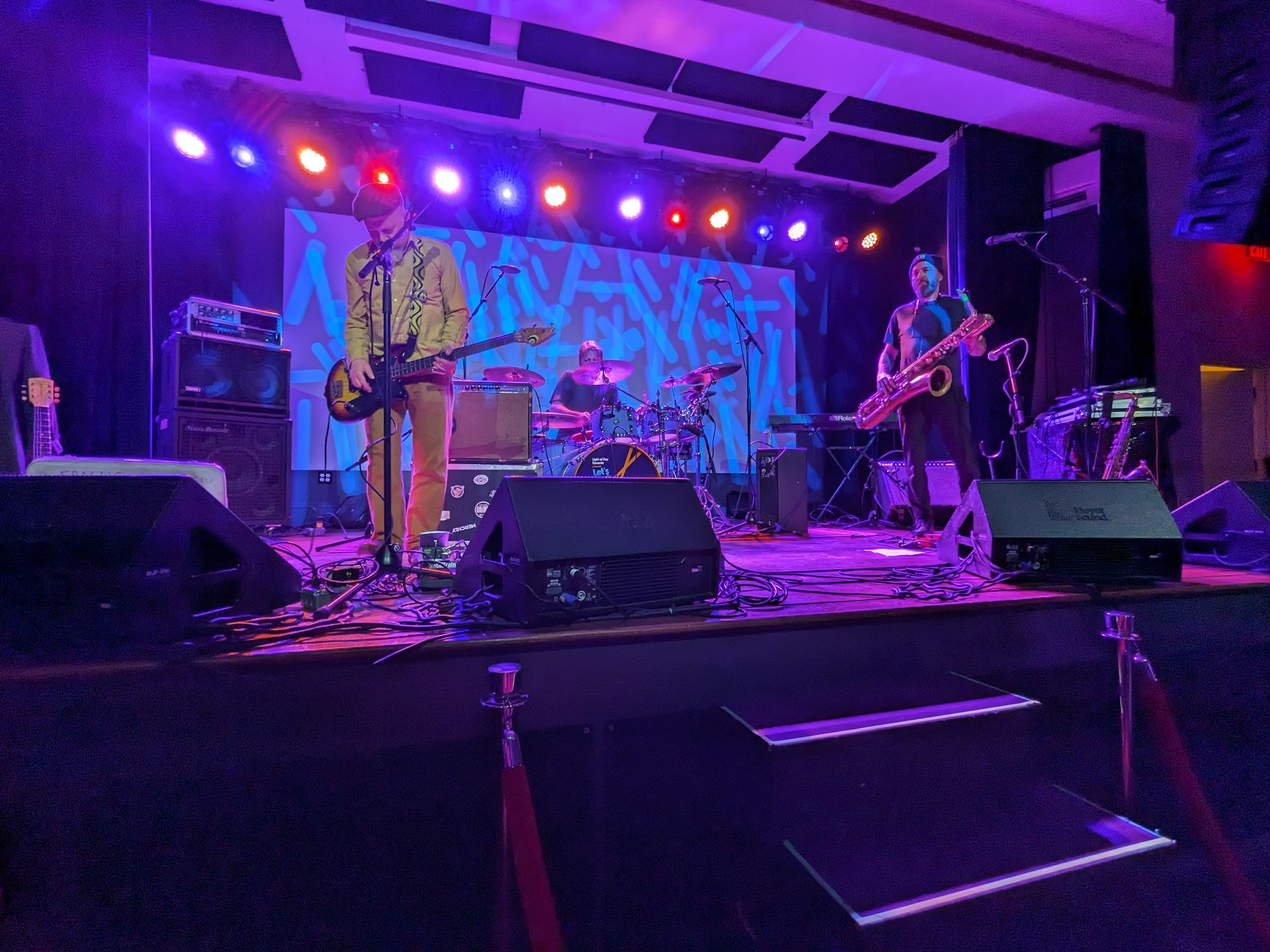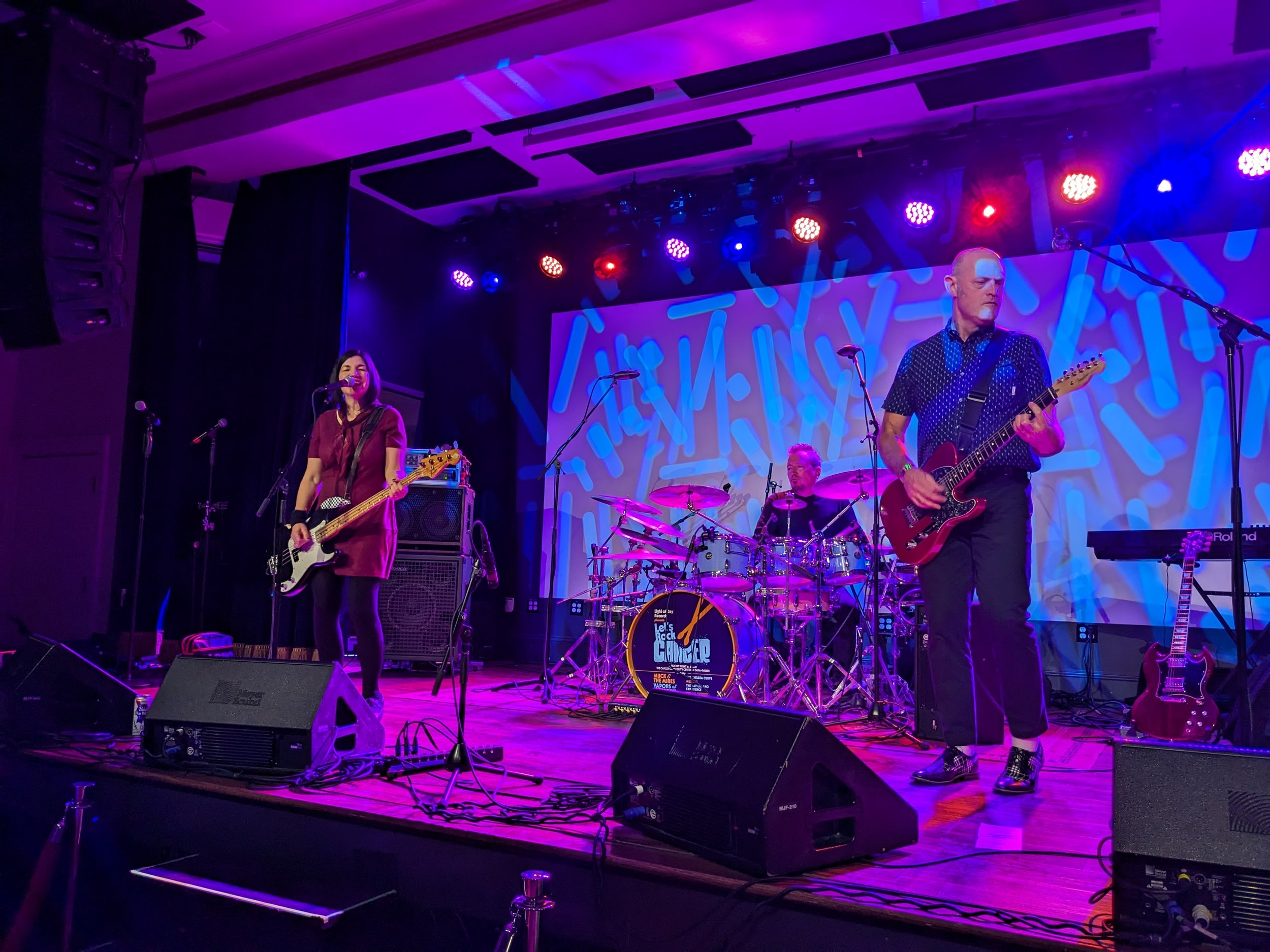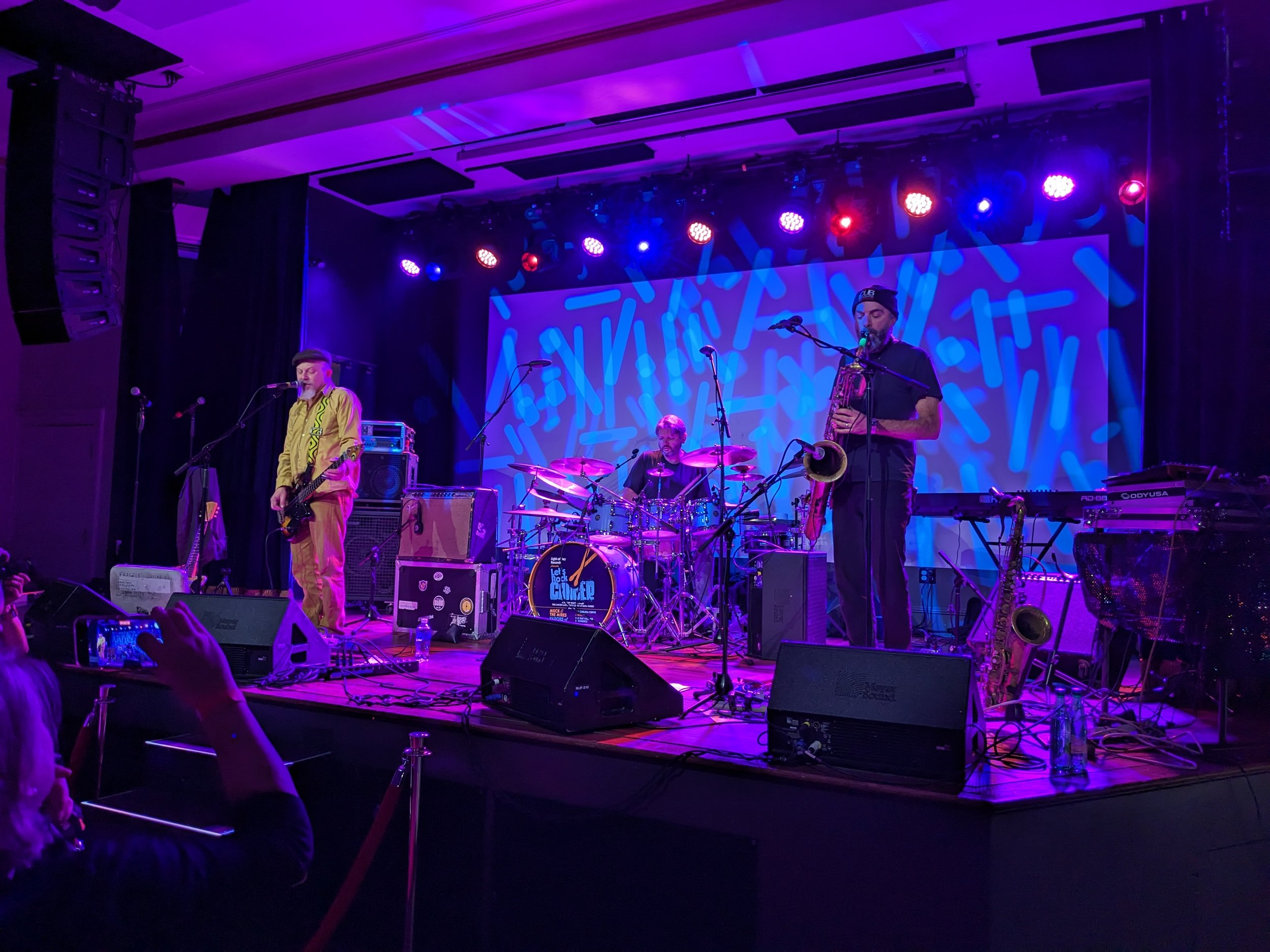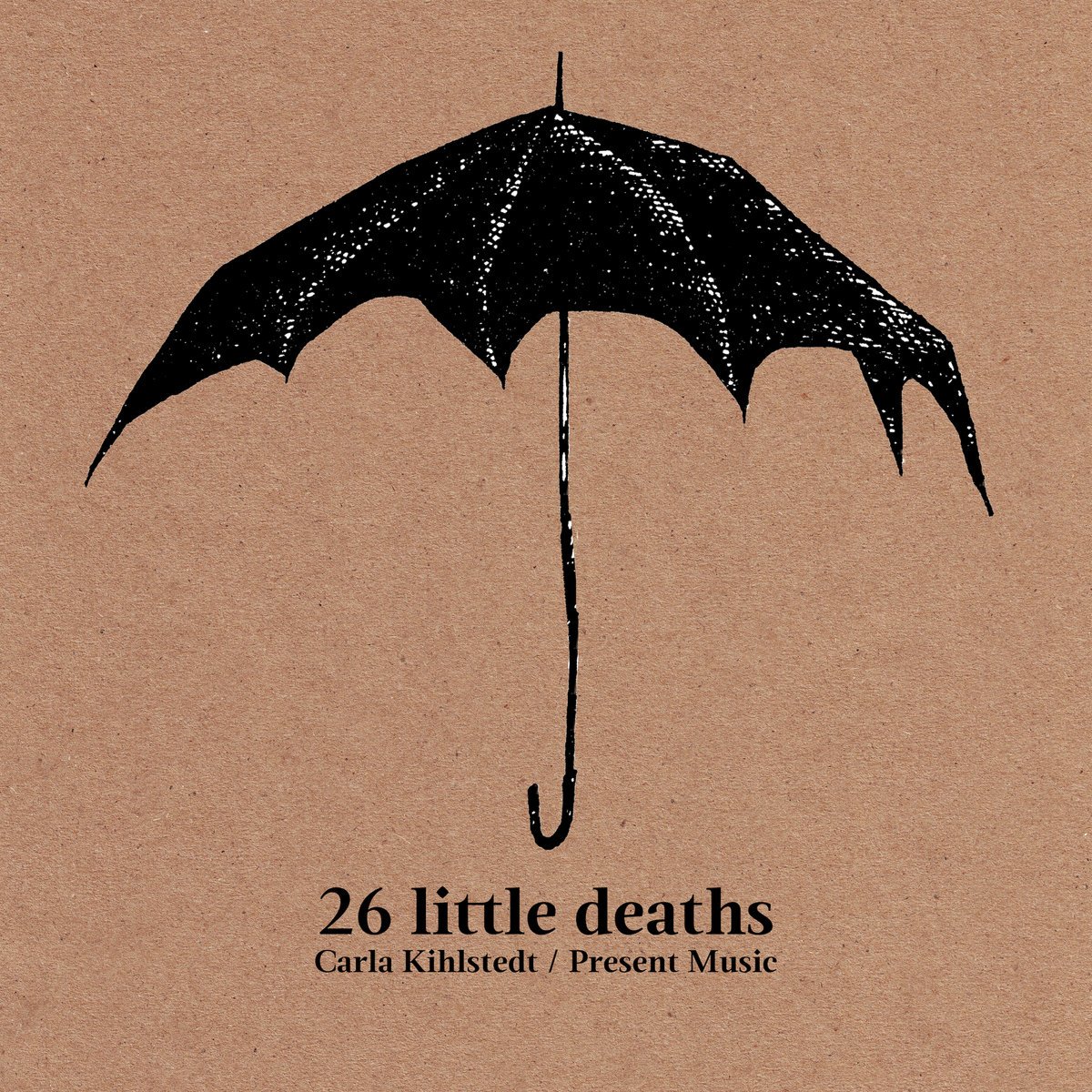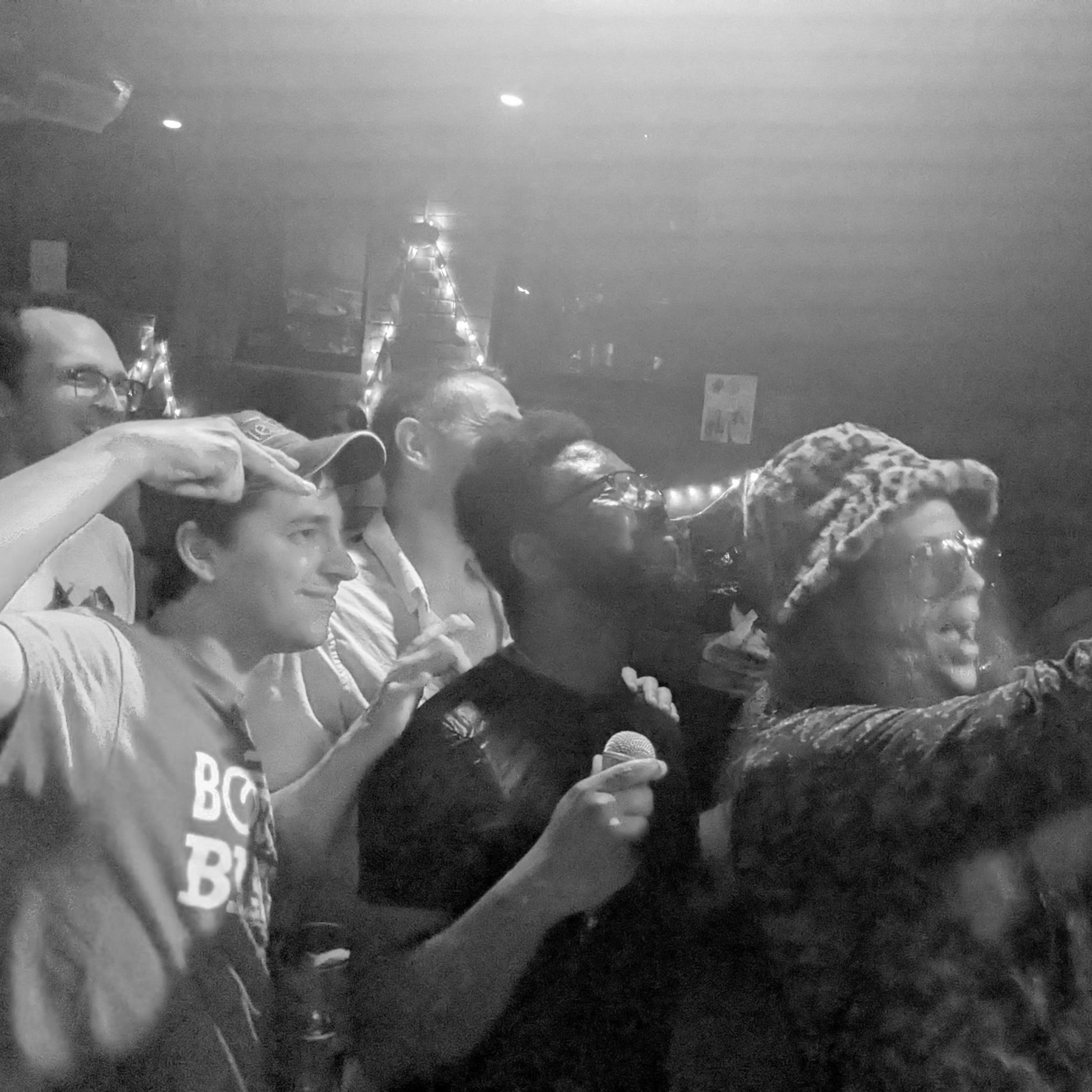The Big C
Vapors of Morphine at the Crystal BallroomLet’s Rock Cancer blows a horn at the Crystal Ballroom on Saturday, 16 December 2023.
Muck & the Mires, Vapors of Morphine, The Chelsea Curve, Muzzins, the Ray Liriano Experience, and Uncivil Servants rock the skyscraper bill.
Light of Day Records presents the benefit for The Cancer Care Equity Center at Dana-Farber.
Cancer is common.
Here are some 2022 statistics from the American Cancer Society.
Cancer continues to be the second most common cause of death in the US, after heart disease. A total of 1.9 million new cancer cases and 609,360 deaths from cancer are expected to occur in the US in 2022, which is about 1,670 deaths a day.
What does that mean for you? It might mean that you have cancer. Or you're going to get it someday. Or someone in your life – maybe someone close to you – has cancer or is going to get it someday.
So cancer is common. Very common. And if left untreated, deadly.
The punch in the gut, though, is that we have many ways to treat many types of cancer effectively, but not everyone has equal access to these treatments.
The Cancer Care Equity Program (CCEP) at Dana-Farber puts the point in a supremely diplomatic and somewhat toothless way.
Cancer mortality rates are concentrated in neighborhoods challenged by the social determinants of health.
There’s a lot packed into each word of the phrase “social determinants of health” and Dana-Farber is not going to unpack it for you.
Uncivil ServantsBut we will!
If you’re poor, or a person of color, or female, or not straight, the wrong religion, whatever, you’re dealing with a lot of shit anywhere. All that shit you’re dealing with creates obstacles to getting proper healthcare and living your healthiest life.
That’s where the Cancer Care Equity Center comes in. The program reaches out with its “on-site” outreach clinics to do some baseline preventive and follow up care like cancer screening, diagnostic workups, genetic cancer risk evaluations, and community education.
The Ray Liriano ExperienceIf a screening turns up an active cancer or worrisome symptom, the program may “to Dana-Farber and/or another cancer facility for further care.”
MuzzinsThere’s nothing in the program literature that suggests patients will receive the “further care” at zero cost. Which is where the “equity” part of "Cancer Care Equity Center” starts to get a little hazy. Sure, there are varieties of cancer and cancer treatment that are cheaper to execute if caught early, and the CCEP initiative could help catch them early.
But, big picture, the reason that “marginal communities” have worse health outcomes is because they’re poor. These communities are not filled with people who have the money to swaddle themselves in layers and layers of human beings who are concerned with making their espresso, increasing their torque, raking their leaves, doing their laundry, never mind curing their cancer.
“Social determinants of health” is a clumsy euphemism for being poor. And basically inaccurate too, because it soft pedals the more direct causal explanation for worse health outcomes. What these marginal communities are living on the margins of is a healthcare infrastructure that is efficiently organized to deliver high quality service to the wealthy, and shitty service to the poor. Or no service at all.
The Chelsea CurveIt can be awkward to have this kind of conversation in the context of a benefit. When you rely on charity and philanthropy to fund initiatives for social goods, you end up spending a lot of time trying to flatter the sensibilities of the rich. The rich don’t want you to point at the gross disparity of wealth and its consequent negative impact on society. They want to be patted on the head, wined, dined, and feted for their tax-deductible contributions.
But hey, the doctors that treat cancer are having this sort of conversation, so we should too. We’re not going to “program” our way to equitable health care because the path to that outcome requires a political solution to change the ground rules by which healthcare operates. And that political solution, whatever its name, needs to be concretely tied to realizing the principle that healthcare is a human right.
Vapors of MorphineThat’s a principle and outcome that the people in attendance for the benefit Sunday night at Crystal Ballroom could probably get behind.
It wasn’t a room full of the ultrawealthy. It was full of regular folks who are doing well enough that they can give a little back, but not so well that they wouldn’t find advantage in a more democratic approach to medicine.
The CCEP is doing good work. Let’s Rock Cancer is doing good work. But until we operate within a political system that codifies equity into healthcare, rather than merely encourages it, we will not achieve what we could achieve in terms of equitable health outcomes for everyone.
Photo Gallery


